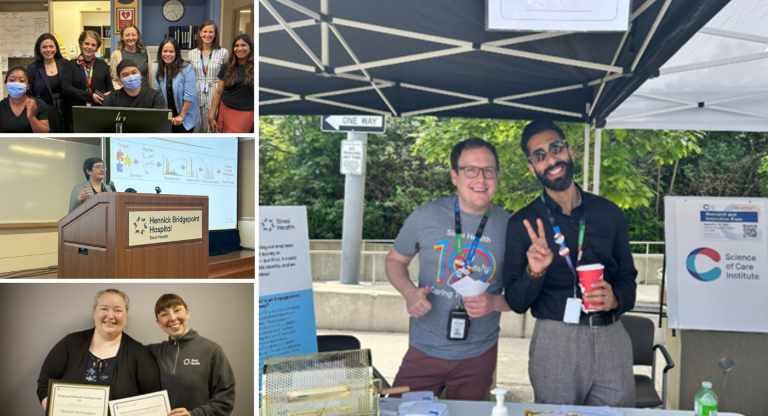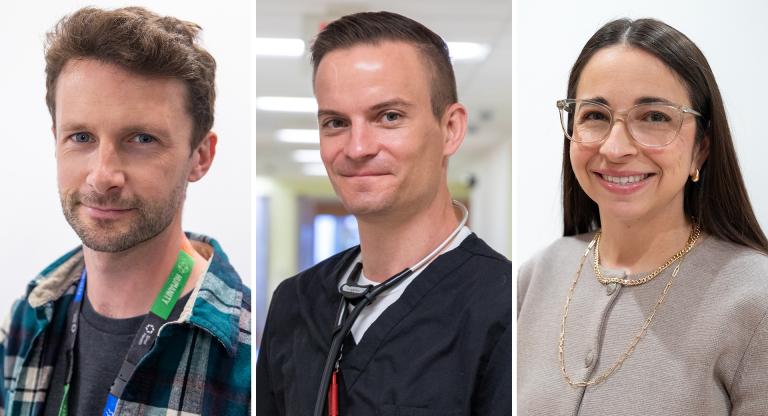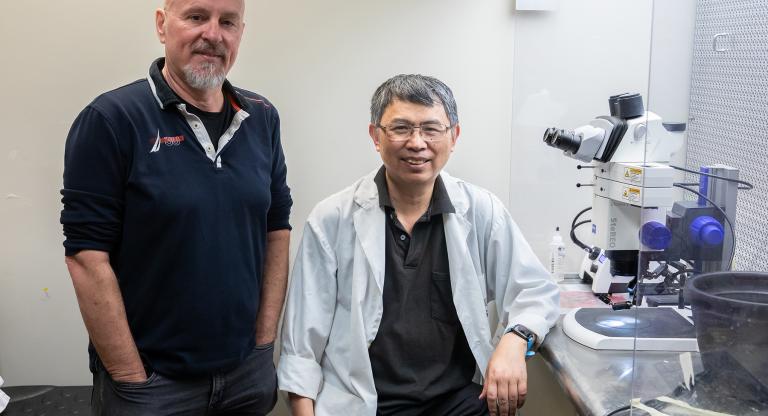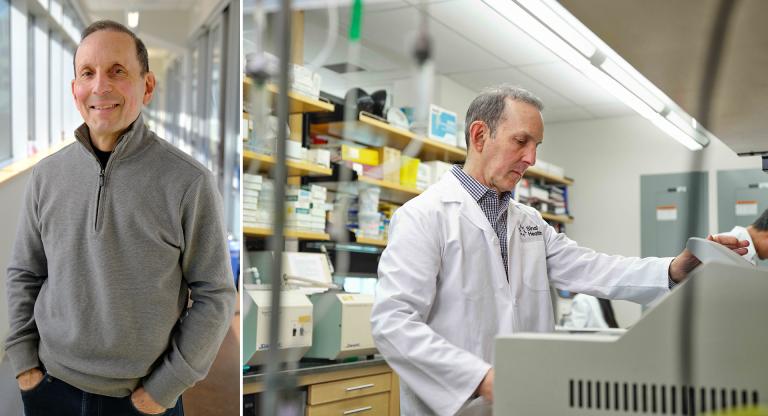New research shows sarcoma’s origins could be decades in the making

Toronto scientists say they have pinpointed potential triggers of an aggressive form of soft tissue cancer that can begin to develop decades before a patient is ever diagnosed or seeks treatment for the disease.
In a new study published this July in Nature Communications, scientists from Sinai Health and The Hospital for Sick Children (SickKids) provide an extensive look at the origins of leiomyosarcoma, or LMS, a sarcoma common in adults and how it spreads and forms different genetic subtypes of LMS tumours.
The research team performed molecular profiling to highlight the very early origins of LMS by testing multiple tumours throughout the body. Dr. Rebecca Gladdy, co-lead author and surgeon-scientist at the Lunenfeld-Tanenbaum Research Institute (LTRI) at Sinai Health, said they uncovered three specific subtypes of LMS that likely develop from smooth muscle cells.
“We really want to better understand what this whole disease is like,” Dr. Gladdy said. “What we’ve uncovered is that there are three subtypes that differ by survival rates and what makes them tick.”
LMS is a type of soft tissue sarcoma, a cancerous tumour that starts in the cells of the body’s soft tissues, including fat, muscle, fibrous tissue, blood vessels, lymph vessels and nerves. Sarcoma can be challenging to treat as some types spread, or metastasize, to other parts of the body.
Dr. Adam Shlien, Senior Scientist in the Genetics & Genome Biology program at SickKids, used whole genome sequencing and computational data analysis to uncover patterns of genetic variations in the tumour samples. Unlike existing studies in the field, the team analyzed multiple tumour sites, including metastasized tumours. These metastases are the most lethal and significantly reduce survival rates in patients, yet are understudied.
“By sequencing the genome, we were able to identify variations in tumour types and also pinpoint certain vulnerabilities like how these sarcoma cells are programmed to mis-repair DNA, which could be how this cancer first develops,” says Dr. Shlien, who is a Canada Research Chair in Childhood Cancer Genomics.
The researchers say this DNA repair problem not only first generates the cancer, but also likely contributes to the metastatic cascade, which causes LMS to spread to other parts of the body. The team says the DNA repair deficit is present in at least half of patients with LMS examined as part of the study, offering a potential pathway to target with future therapies.
In general, sarcomas are rare cancers in adults but common in children. About 1,000 Canadians are diagnosed with soft tissue sarcoma each year. The average age for patients to be diagnosed with LMS is 60, but the study team estimates the origins of a tumour can start two decades earlier.
“Because we uniquely started with multiple tumour sites along multiple time points in cancer development, we could time the origin of a tumour. Our data suggests that not only are the molecular alterations that cause these subtypes of LMS different, the origins of these LMS variations can start as early as decades before diagnosis,” says Dr. Shlien.
Dr. Gladdy says they hope to use these findings in an upcoming clinical trial to use drugs that are effective in treating tumours that have DNA repair deficiency.
“Current chemotherapy works in about 20 to 30 percent of patients, and thus we need to do better. This research has provided us with new drug targets that may more effectively treat patients with tumours that arise from DNA repair defects,” Dr. Gladdy said.
Tumour samples and clinical information for the study were provided by Dr. Gladdy and other members of the Toronto Sarcoma Program, a joint initiative by Mount Sinai Hospital, the University Health Network and SickKids.
Research funding was provided by the Panov Foundation and the Martin E. Blackstein Patient Donation Account at Sinai Health, as well as grants from the University of Toronto McLaughlin Centre Accelerator Award, the Robert J. Arceci Innovation Award from the St. Baldrick’s Foundation, the Canadian Institutes of Health Research (CIHR), and the Division of Surgical Oncology, University Health Network.
Please note that photos taken over the course of the COVID-19 pandemic may not reflect the protocols now in place across Sinai Health.












